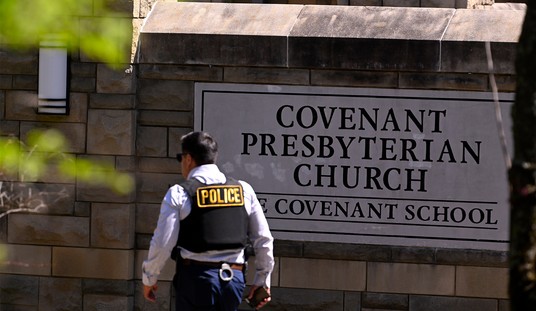We all know the scary statistic by now: a recent YouGov survey shows that millennials have much more favorable views of socialism than of capitalism. For someone like me who survived one of the worst socialist regimes in human history (communist China), this result is beyond heart-breaking. There's no doubt that millennials do not understand what socialism is. They never learned about the atrocities and human sufferings socialism has caused. It's not the fault of the millennial generation, but the fault of our education system. For those of us who lived through socialism, we have a moral duty to reach out to young people and help them learn the truth of socialism. How should we approach this? Speak up and share your personal stories.
Yes, millions of people died under socialism. But very few people respond to statistics. Joseph Stalin, who was responsible for the death of 30-40 million Russians, once said (and this is only time I will ever quote him), "A single death is a tragedy; a million deaths is a statistic." So when we talk to millennials about socialism, instead of citing statistics, let's share our personal stories; how we and people we loved suffered under socialism. I understand that it's excruciating to tell those stories and many of us would rather just forget about it. I remember when I was writing my autobiography, Confucius Never Said, some of my recollections were so painful, that I had to take some time out because I was overrun by emotions.
But we have to share our stories no matter how dreadful we feel because a good personal story makes a complex concept such as socialism easy to understand; it sparks people's emotions and keeps them engaged; it inspires empathy and action. Maya Angelou once said, “People will forget what you said, people will forget what you did, but people will never forget how you made them feel.”
So if you are a survivor of socialism, whether from the former Soviet Union, China, Cuba or Venezuela, speak up and share your stories. Don't limit yourself to just your families and friends. Make yourself available to your community, especially neighborhood schools. Contact the local high schools and ask them if you can come to their social science or history class and speak to the kids directly. I've spoke at several high schools before. Rather than telling them that 20-30 million Chinese people died during the three famine caused by Mao's disastrous policy, I shared with them the story of an uncle I never met. He was born during the famine. My grandmother was too hungry to produce any milk to feed him, and there was no baby formula available. He died in my grandmother's arms. While I was sharing this story, those teenagers were spell bound. No one was checking their iPhones. Many of them came to shake my hand afterwards and said "thank you." It was a rewarding experience for me.
In addition to speaking, we also need to develop multimedia platforms to educate young people on socialism. Even though there are many wonderful books written about suffering under socialism, such as Ayn Rand's We the Living, or Yang Jisheng's Tombstone, we know young people nowadays don't read as much as previous generations and they respond better to other media platforms such as photos, films, podcast etc.
Recommended
There is something we should learn from the Holocaust survivors: they have been relentlessly pushing for education on the Holocaust through books, movies, documentaries, talks and there are many Holocaust museums around the world to bring all these together. They use all the tools available to make sure people, especially the young, will never forget the Holocaust. We, the survivors of socialism/communism, haven't done nearly enough to ensure people know the truth of socialism/communism. When was the last time a movie was made about socialism/communism? Where is the museum of the suffering of socialism/communism?
We the survivors of socialism/communism have a lot of catching up to do. The YouGov survey is a wake up call. Time is running out. Martin Luther King Jr. once said, "the time is always right to do the right thing." Let's get to work now!


